Flavio Orlando (Rome, 1991) is an out-of-the-box artist. Although his research focuses on seemingly simple and familiar themes, such as everyday life experiences, memories and bonds, what he manages to reproduce on canvas tells us about a pictorial imagery that is anything but banal and “already seen.” A graduate in Painting from the Academy of Fine Arts in Rome, Orlando plays at interweaving the real with personal feelings, resulting in almost paradoxical works of art that, with a touch of irony and a pop vein, manage to get straight to the point.
The most recent solo show is Tappa fissa, organized by the Contemporary Cluster gallery in Rome: in the exhibition, Orlando presented works that explore relational dynamics and all those common feelings, of which we are not aware, that rework our joy, often shared with our life companions during the most sincere daily experiences. And it is indeed from the everyday that Flavio Orlando’s works arise. His works of art arise mainly from a particular way of drawing and holding the pen and are based on a non-realism of what he wants to represent: before the creative process, the protagonists are immortalized by the camera, understood in its most classic function of fixing the moment. This silent process generates an effect capable of animating a visionary pictorial camera linked to a purely expressive purpose: to try to convey a feeling that reflects his interiority. The figures that populate his paintings are those that leave a strong sensitive impression in his daily life. However, they oscillate between being real people and typified characters, and it is precisely on this play of roles that Orlando focuses the entire artistic composition.
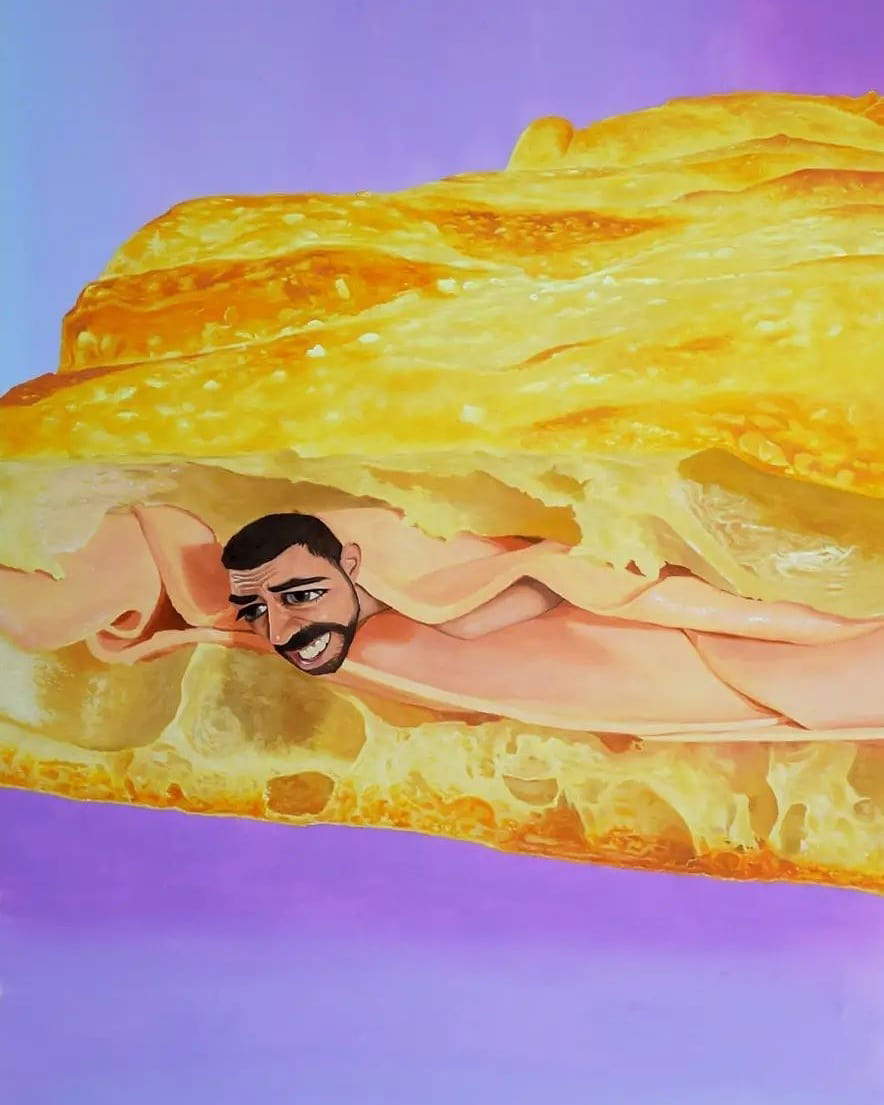
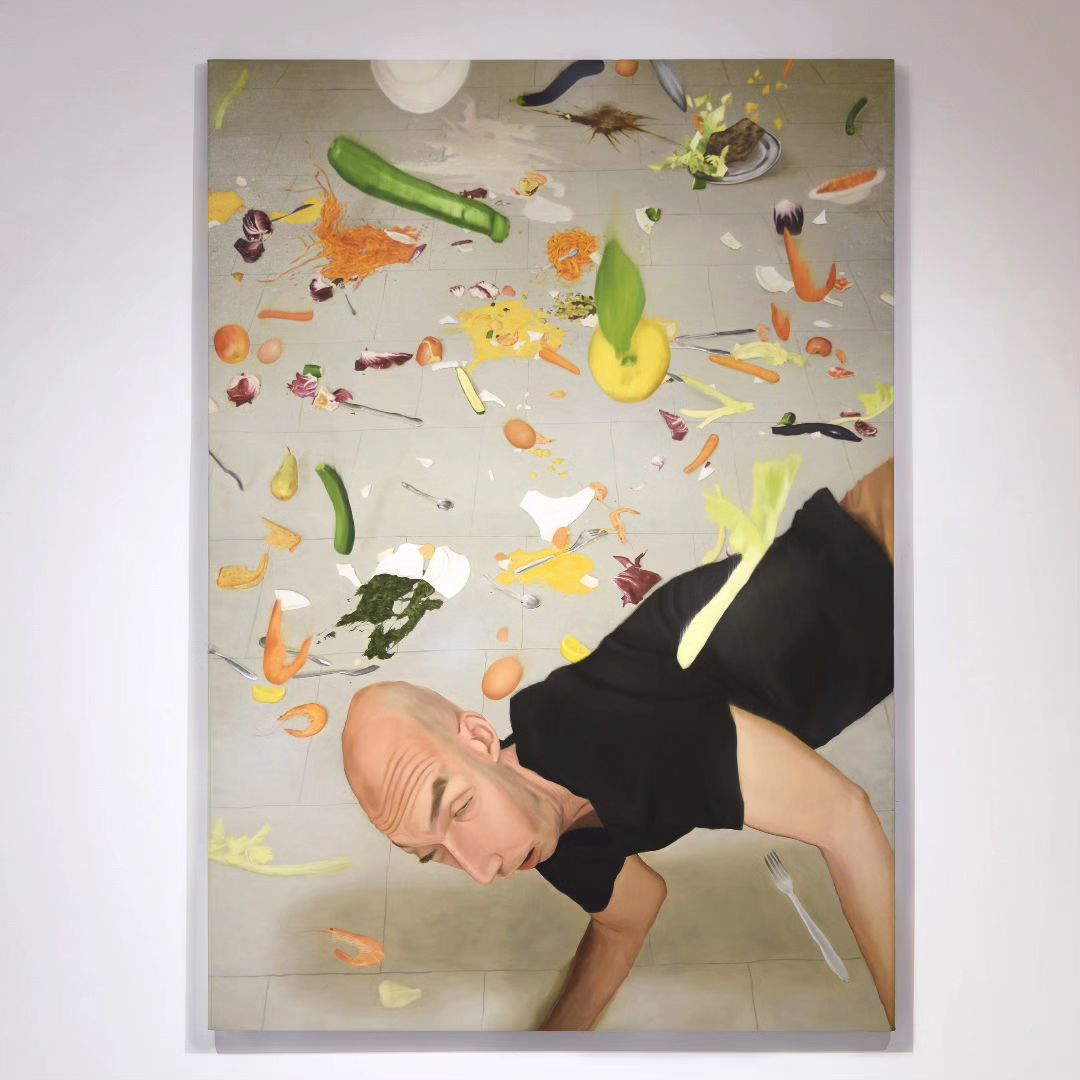
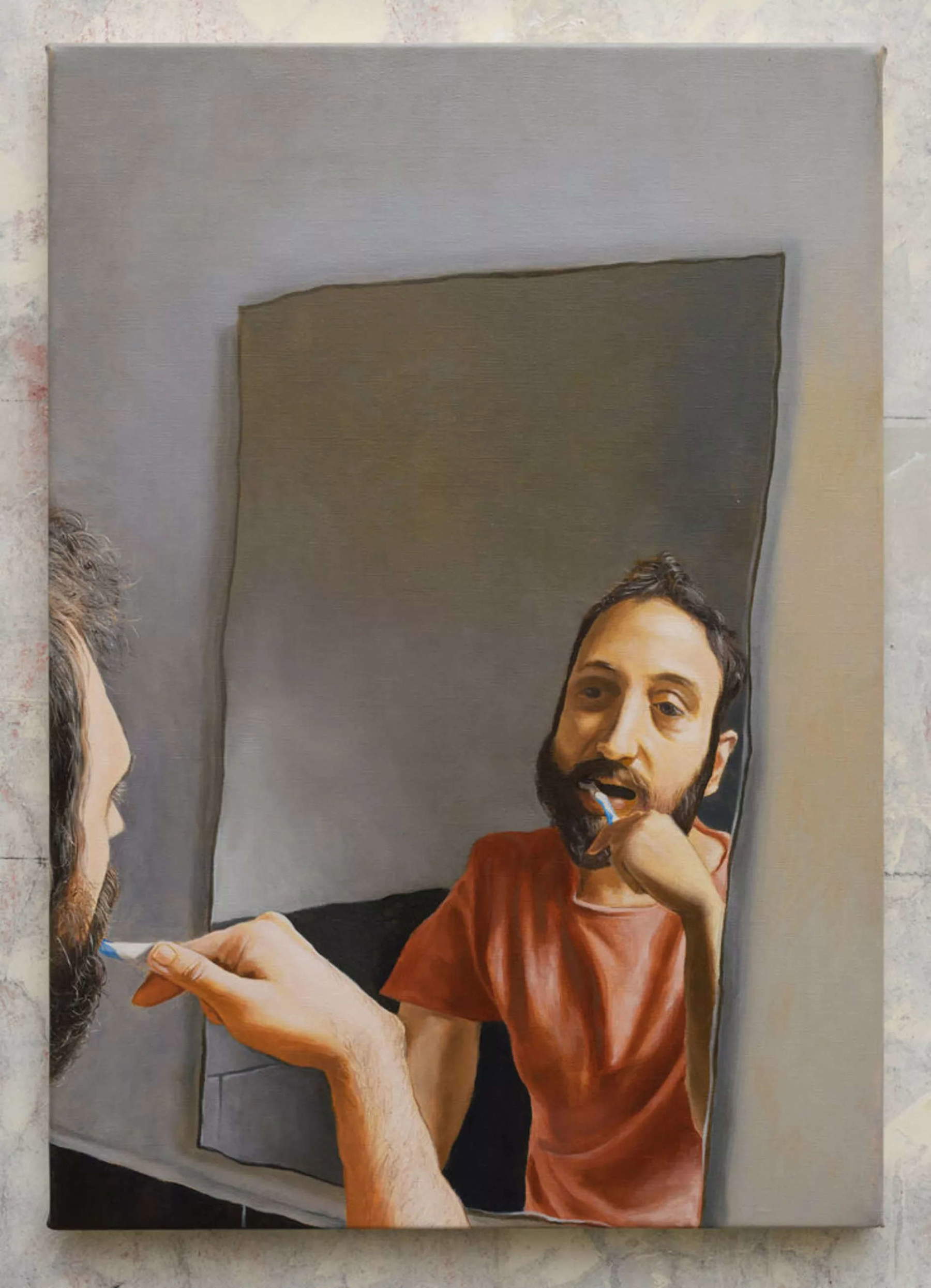
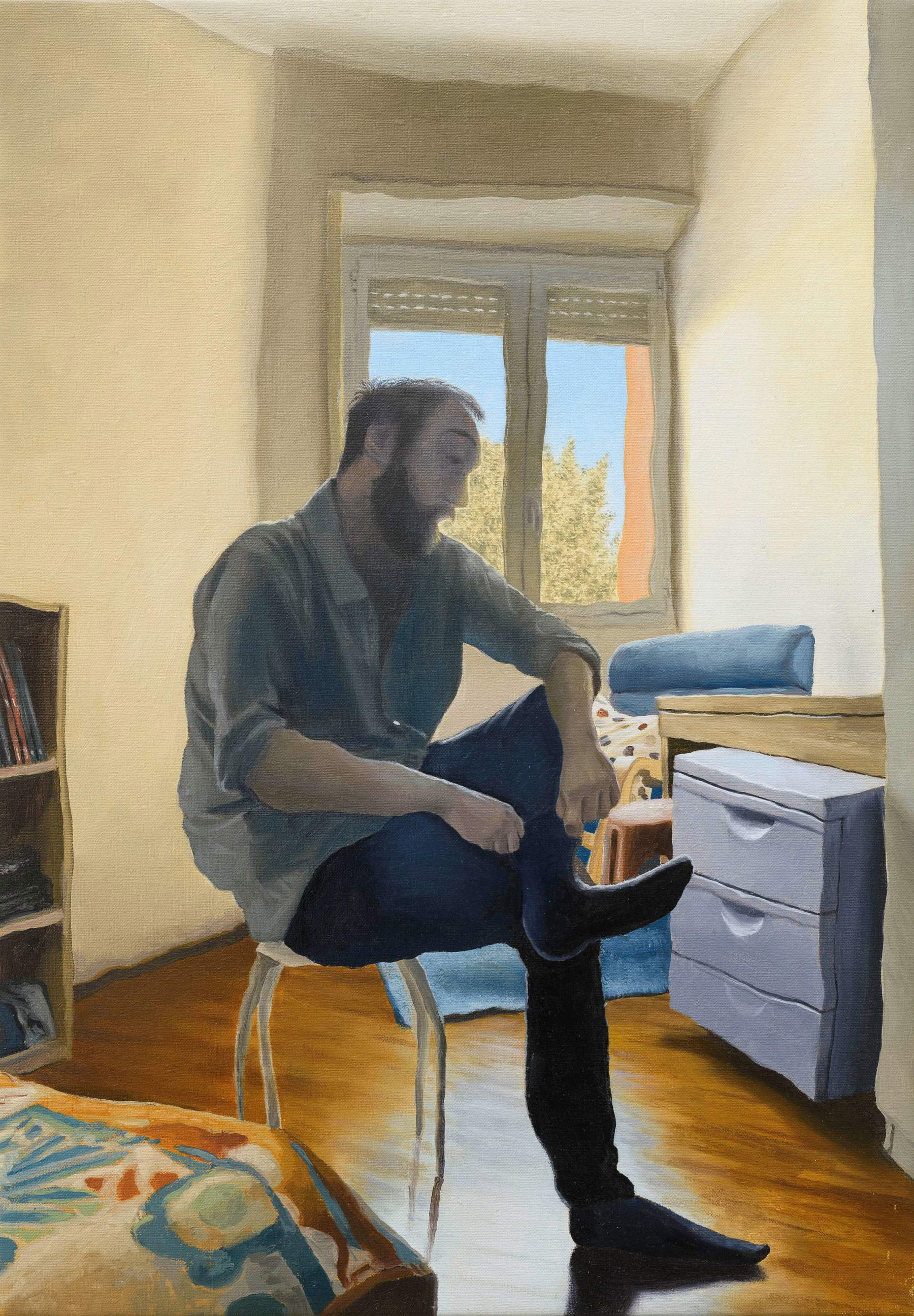
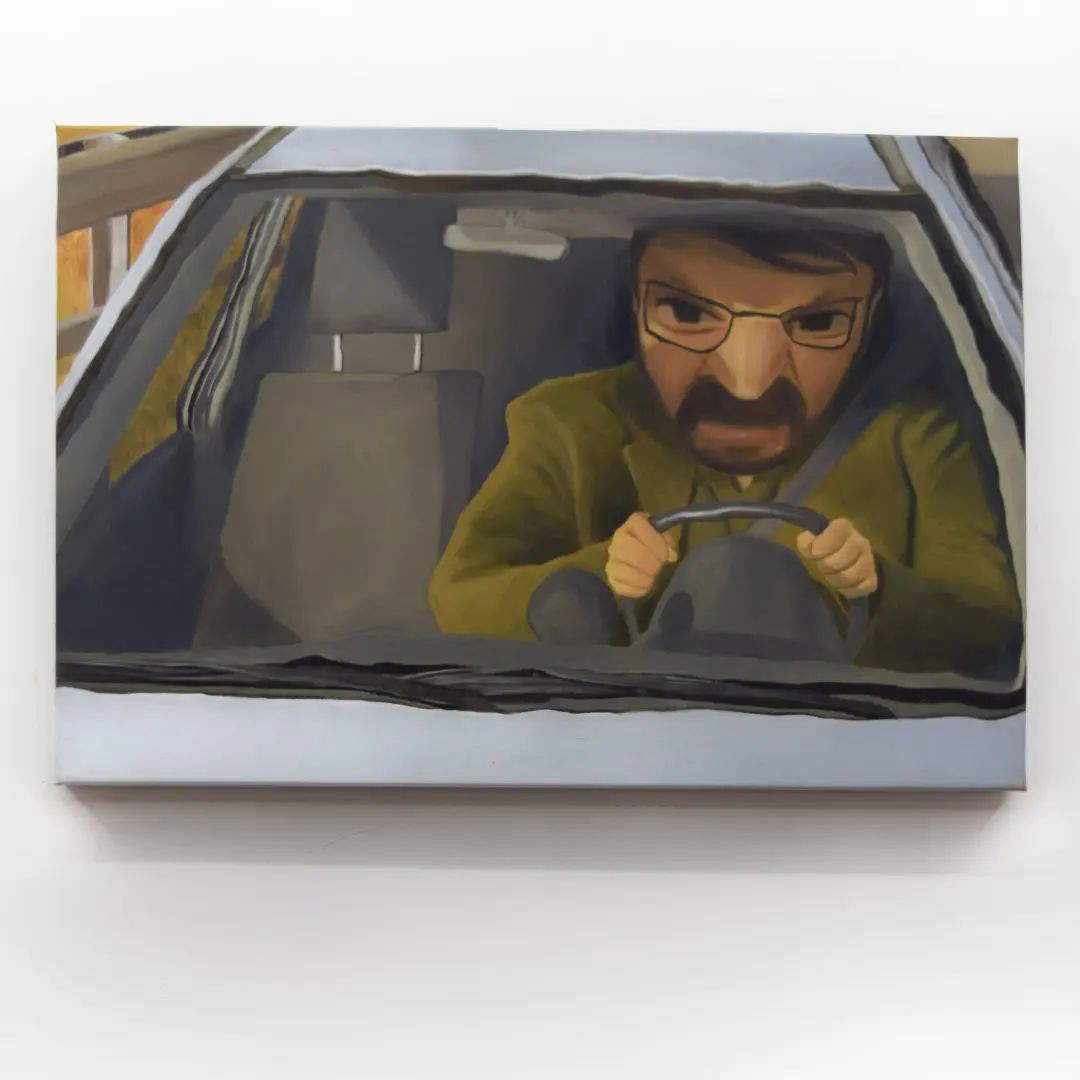
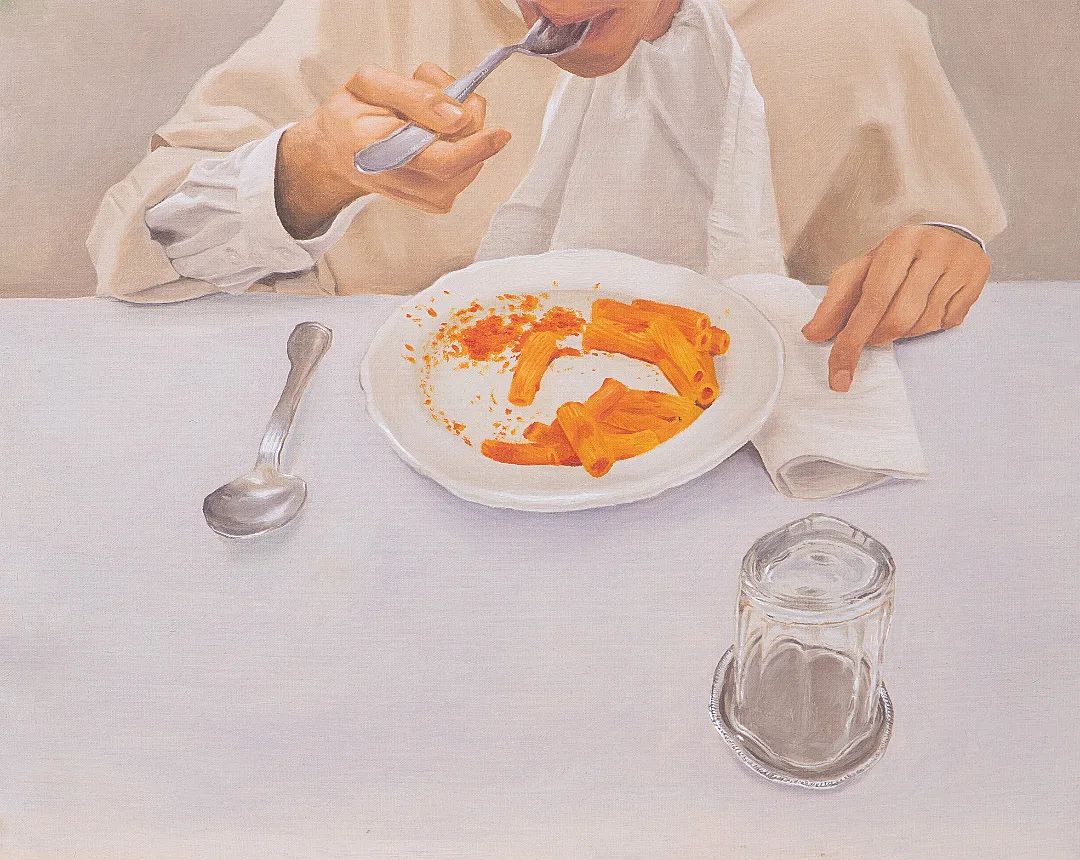
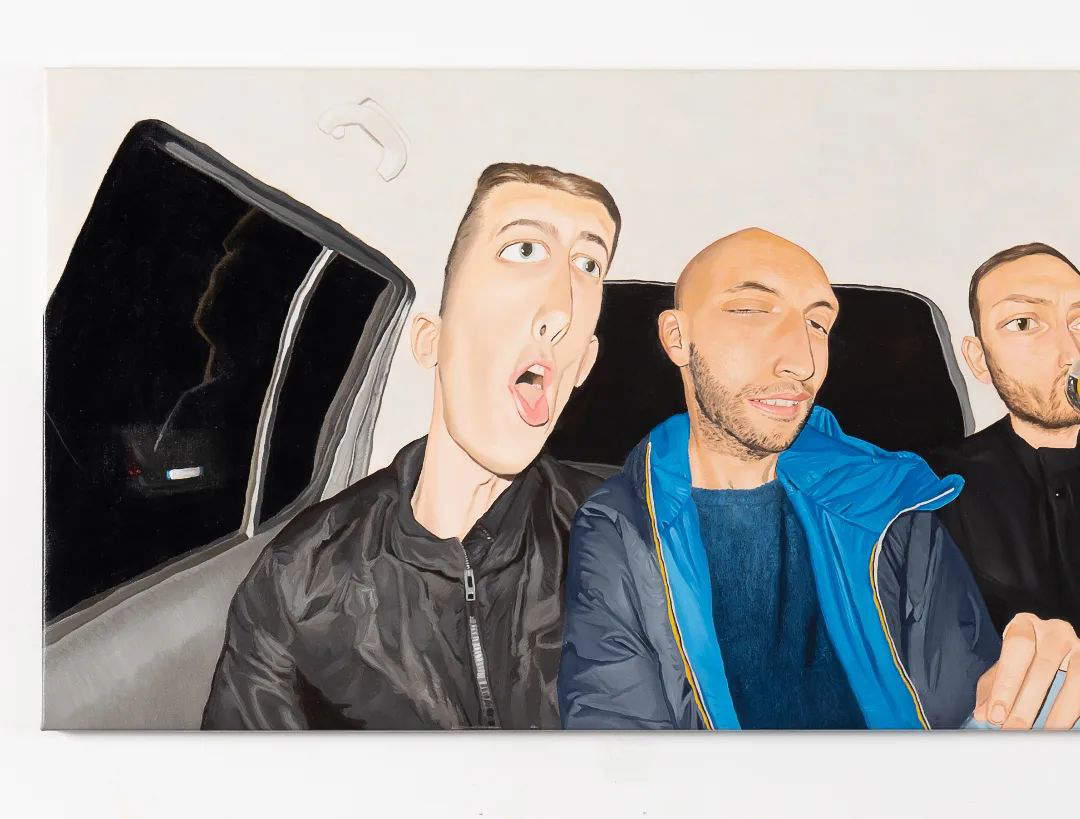
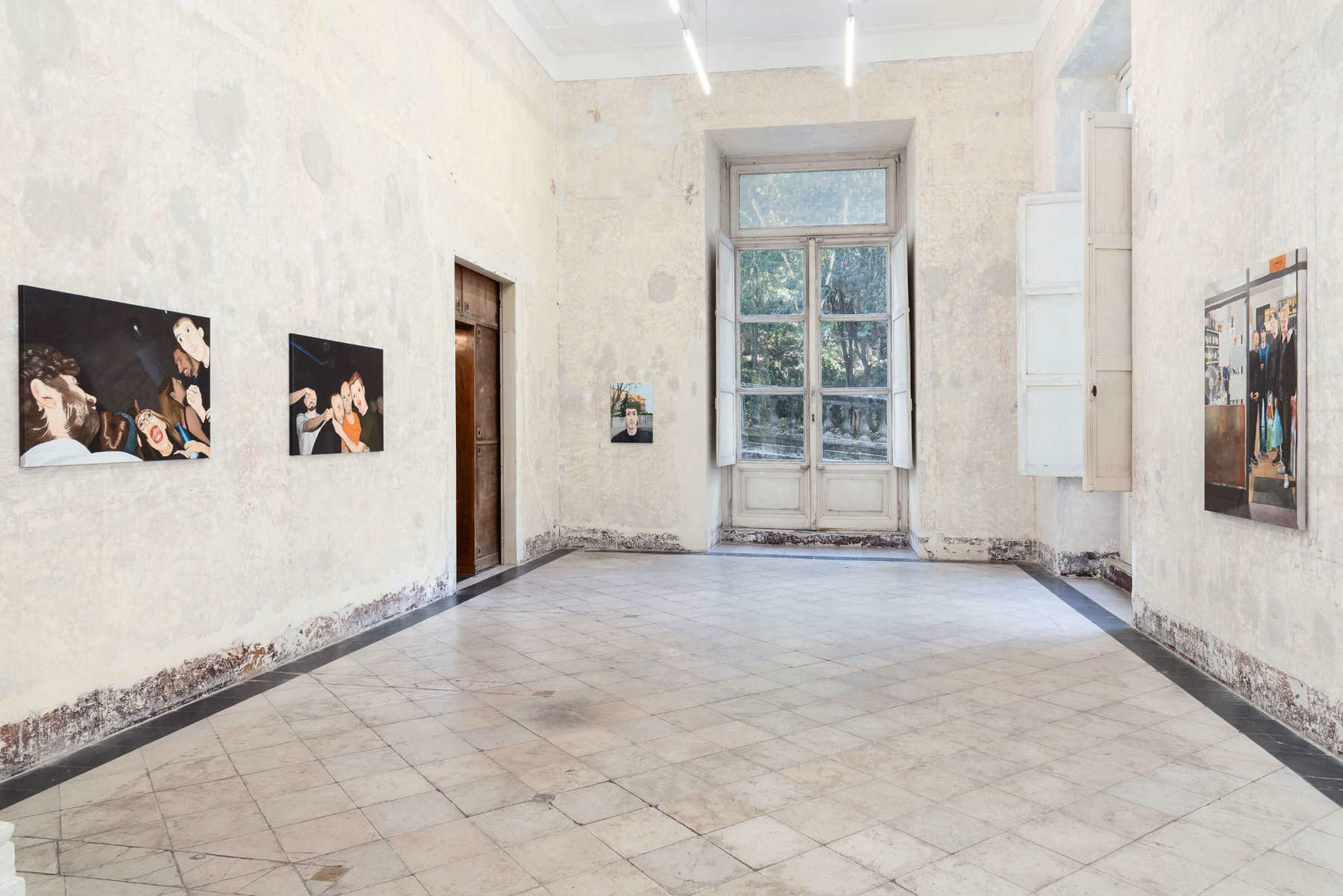
Although the contemporary art context has been a particular influence, Orlando does not draw inspiration from specific artists, as he has always worked on himself and his surroundings. His source of inspiration is reality, the mythology of the everyday. His research is inclined toward diversity, the beauty of human relationships and the curiosity that constantly drives him to amplify his perceptions and sensations each time in order to grasp what is most true and sincere in everything that surrounds him. He speaks to us of a pictorial language that distances itself from today’s figurative and tells of everyday life, of what happens and can happen to each of us, with a veil of irony. It tells us about the passage of time, our relationship with the everyday, shared experiences and places explored and unexplored. A swinging realism that collides with the artist’s imagination, who reframes each situation through an ironic lens.
There is nothing too articulate, conceptual: just reality, filtered through the artist’s eyes, represented in a brilliant and, at first glance, bizarre way. Il peso dell’ozio (2021) tells us about how lazing around tires us, and it does so using a common element much loved by Italians, and more specifically by Romans: pizza with mortadella. Idleness is the opposite of work, but if this counterbalance is missing, idleness becomes perpetual and loses meaning. What weight can this imbalance have in our lives? The same as eating bologna pizza would have without the drudgery of eating other mediocrely normal and boring foods. And so pizza with bologna as a physicalization of idleness can crush us, just as idleness could.
What emerges is a pure and essential depiction of simplicity and what surrounds human beings in everyday life: works such as The Fall (2024) tell us about thehilarity of the moment of falling and how similar situations are often transformed into a moment of irony and fun. Series such as Everyday (2023), on the other hand, deal with the delicate theme of the repetitiveness of life, of the monotony of everyday life, always with an ironic touch that is revealed in the facial expressions of the characters, trapped in situations so common that they cannot help but empathize.
People, moments of life, but also fragments of cities cast in the phenomenal and tangible guise of night: enigmatic realities where it is as easy to get lost as it is to find oneself. A form of initial disorientation that induces the viewer to first relate to the artist’s perspective, and then acquire a new and strictly personal one. The reality represented is transformed through the artist’s gaze and the work, in turn, changes shape depending on who is in front of it, like a role-playing game.
Flavio Orlando’s is an artistic universe populated by works that make people smile, laugh and reflect. They are works that invite identification, that make one think “it happened to me too,” that communicate the importance of dwelling on the details and sensations that populate the everyday, but also on the mere materialistic aspect of life. They are an invitation to embrace reality with lightness and irony, to exalt life as it flows.
Warning: the translation into English of the original Italian article was created using automatic tools. We undertake to review all articles, but we do not guarantee the total absence of inaccuracies in the translation due to the program. You can find the original by clicking on the ITA button. If you find any mistake,please contact us.